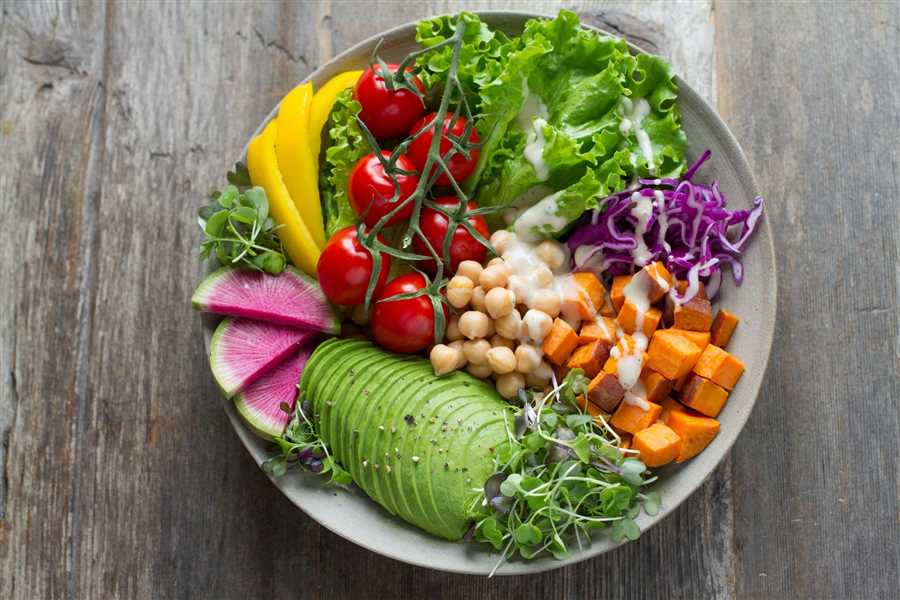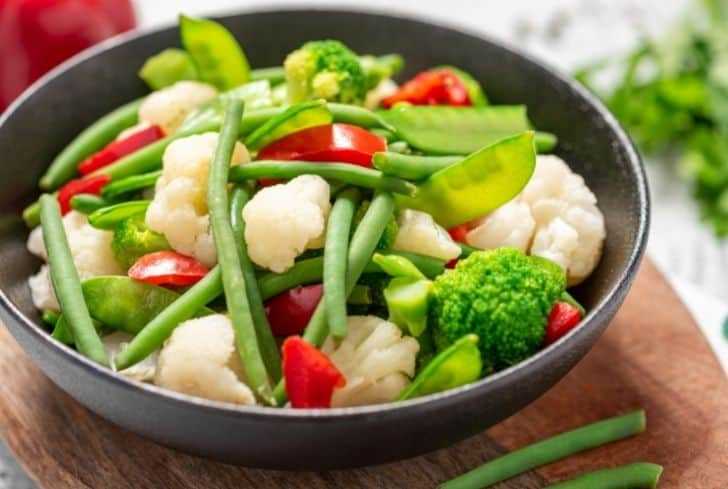





Composting is a natural and environmentally friendly way to dispose of organic waste and create nutrient-rich soil. It involves the decomposition of organic matter, such as food scraps and yard waste, by microorganisms like bacteria and fungi. While many types of organic waste can be composted, there is often confusion about whether cooked vegetables can be included in the compost pile.
The short answer is yes, cooked vegetables can be composted. However, there are a few things to consider before adding them to your compost pile. Cooked vegetables can break down and decompose, just like raw ones, but there are some factors that can affect the process.
One factor to consider is the ingredients used in the cooking process. Some ingredients, such as salt, oil, and spices, may affect the decomposition process and can attract pests to the compost pile. Therefore, it is important to avoid adding large amounts of these ingredients or heavily seasoned cooked vegetables to your compost.
Another factor to consider is how the cooked vegetables were stored before being added to the compost pile. If the vegetables were stored in the refrigerator for an extended period of time, they may have started to spoil or develop mold. In this case, it is best to avoid adding them to the compost, as this can introduce harmful pathogens and bacteria.
In summary, while cooked vegetables can be composted, it is important to consider the ingredients used in cooking and the condition of the vegetables before adding them to your compost pile. By being mindful of these factors, you can successfully compost your cooked vegetable scraps and contribute to the creation of nutrient-rich soil for your garden.
Can Cooked Vegetables be Composted?
Composting is a great way to reduce waste and create nutrient-rich soil for your garden. However, when it comes to composting cooked vegetables, things can get a little tricky. While raw fruits and vegetables are excellent candidates for composting, the same cannot be said for their cooked counterparts.
Why are Cooked Vegetables Difficult to Compost?
When vegetables are cooked, they undergo physical and chemical changes. Heat breaks down the cell walls of the vegetables, making them softer and easier to digest. However, this also means that cooked vegetables decompose more quickly compared to raw ones.
The high moisture content and quick decomposition of cooked vegetables can lead to the development of unpleasant odors and attract pests such as rats and flies. These unwanted guests can disrupt the composting process and create a sanitary issue in your compost pile.
What to Do with Cooked Vegetables Instead
Instead of composting cooked vegetables, consider other alternatives to reduce food waste. If the vegetables are still edible, they can be used in various dishes or frozen for future use. You can mix them into soups, stews, or casseroles where they can add flavor and texture.
If the cooked vegetables are no longer suitable for consumption, they can be blended into a puree and added to sauces or soups. This way, you can still incorporate their nutrients into your meals without wasting them.
If none of these options are feasible, you can dispose of the cooked vegetables in a green waste bin if your local waste management facility allows it. These facilities are equipped to handle organic waste and can process the cooked vegetables in an appropriate manner.
Note: It’s important to remember that composting is most effective when a proper balance of materials is maintained. Composting mainly uncooked kitchen scraps, yard waste, and other organic materials is the best approach to create high-quality compost.
Benefits of Composting Cooked Vegetables

Composting cooked vegetables can have a positive impact on both the environment and your garden. Here are some benefits of composting cooked vegetables:
- Reduced food waste: Composting cooked vegetables allows you to make use of scraps that would otherwise be thrown away, reducing the amount of food waste that ends up in landfills.
- Nutrient-rich compost: Cooked vegetables, when composted, break down into a nutrient-rich soil amendment. This compost can then be used to enrich the soil in your garden, providing essential nutrients to your plants.
- Improved soil quality: Composting cooked vegetables helps to improve the overall quality of your soil. It helps to retain moisture, improves soil structure, and increases the availability of nutrients for your plants.
- Reduces the need for chemical fertilizers: By using compost made from cooked vegetables, you can reduce your reliance on chemical fertilizers. This is not only beneficial for the environment but also helps to maintain the health of your garden in the long term.
- Reduces greenhouse gas emissions: Composting cooked vegetables reduces the amount of organic waste in landfills. As organic waste decomposes, it produces methane gas, which is a potent greenhouse gas. By composting cooked vegetables, you help to reduce greenhouse gas emissions and their impact on climate change.
In conclusion, composting cooked vegetables is a sustainable way to reduce food waste, improve soil quality, and protect the environment. By utilizing this natural process, you can create nutrient-rich compost that benefits your garden and contributes to a healthier ecosystem.
Composting Process for Cooked Vegetables

Cooked vegetables can indeed be composted, although there are a few considerations to keep in mind to ensure successful composting.
1. Preparation:
Before composting cooked vegetables, it is essential to make sure they are fully cooled. Hot or warm food scraps can attract pests and create odors in the compost pile. Once cooled, cut the vegetables into smaller pieces to accelerate the decomposition process.
2. Composting Method:
There are various composting methods available, including traditional backyard composting, vermicomposting, and compost tumblers. Choose the method that works best for your situation and follow the instructions accordingly.
In traditional backyard composting, you can mix the cooked vegetables with other organic residues such as yard waste, leaves, or coffee grounds. Aim for a ratio of approximately 3 parts brown (carbon-rich) materials to 1 part green (nitrogen-rich) materials. This balance will help the composting process and produce a nutrient-rich end product.
If you prefer vermicomposting, which uses worms to break down organic matter, you can add cooked vegetables to the worm bin. However, be cautious not to overload the bin with too much food scraps as it may create an unfavorable environment for the worms.
Compost tumblers are a convenient option, particularly for those with limited space. Follow the instructions provided with your specific compost tumbler to know the recommended process for composting cooked vegetables.
3. Maintenance:
Regardless of the composting method chosen, proper maintenance is essential for successful composting. Turn the compost pile regularly to provide oxygen and aid in the decomposition process. Keep the compost moist, but not overly wet, by watering it occasionally. Monitor the temperature to ensure it stays within the optimal range of 110-160°F (43-71°C).
If any unpleasant odors arise, introduce more browns (e.g. dry leaves or shredded paper) to the compost pile and mix them well. This will help balance the carbon-nitrogen ratio and reduce any potential odors.
It is important to note that the composting process for cooked vegetables may take longer compared to raw vegetable scraps. The cooking process can break down the cell structure of the vegetables, making them more resistant to decomposition. However, with proper care and patience, cooked vegetables can be successfully composted and contribute to the creation of nutrient-rich compost.
What to Avoid when Composting Cooked Vegetables
Composting cooked vegetables is a great way to reduce food waste and create nutrient-rich compost for your plants. However, there are some things you should avoid when composting cooked vegetables to ensure that your compost pile remains healthy and odor-free.
Avoid adding oily or greasy cooked vegetables
Oily or greasy cooked vegetables, such as french fries or deep-fried vegetables, should be avoided when composting. The oils and fats from these cooked vegetables can create clumps in the compost pile and prevent proper aeration and decomposition. Additionally, they can attract pests to your compost pile.
Avoid composting vegetables with high salt content
Vegetables that have been cooked with a lot of salt, such as pickles or canned vegetables, should be avoided when composting. High salt content can be harmful to the microorganisms that break down organic matter in the compost pile. It can also affect the pH balance of the compost, making it less suitable for plants.
It is important to note that small amounts of salt or oil from cooked vegetables are generally not a problem for composting. However, large quantities can have negative effects on the compost pile.
By avoiding oily or greasy cooked vegetables and those with high salt content, you can ensure that your compost pile remains healthy and produces nutrient-rich compost for your plants.
Recommended Composting Methods for Cooked Vegetables
Composting is a great way to reduce waste and create nutrient-rich soil for your garden. While many people compost raw fruits and vegetables, there is often confusion about whether or not cooked vegetables can be composted. The good news is that cooked vegetables can be composted, but some additional steps may be necessary to ensure successful decomposition.
When composting cooked vegetables, it’s important to consider the ingredients used in the cooking process. Vegetables that have been cooked with oil or seasoning should be composted in moderation. Excessive amounts of oil can create an anaerobic environment in your compost pile, slowing down decomposition and producing unpleasant odors. Seasonings, on the other hand, can attract pests to your compost pile.
If you have a compost bin with a lid, you can safely compost cooked vegetables by burying them in the center of the pile. This helps to minimize any potential odors and keeps pests away. Try to chop the vegetables into smaller pieces before adding them to the pile, as this will help speed up decomposition.
Alternatively, you can also use a compost tumbler or composting system that allows for hot composting. Hot composting involves maintaining a high temperature in the compost pile, which helps to break down organic matter more quickly. This method is especially useful for composting cooked vegetables, as it can help to kill off any potential pathogens that may have survived the cooking process.
Remember to balance the carbon-to-nitrogen ratio in your compost pile by adding dry materials such as leaves or shredded paper along with the cooked vegetables. This will help to create a well-balanced compost that will nourish your plants.
In conclusion, cooked vegetables can be composted, but it’s important to consider the ingredients used in the cooking process and take additional steps to ensure successful decomposition. By following these recommended composting methods, you can turn your leftover cooked vegetables into nutrient-rich soil for your garden.
Question-answer
Can I compost cooked vegetables?
Yes, you can compost cooked vegetables. They will decompose and add nutrients to your compost pile.
What types of cooked vegetables can be composted?
You can compost all types of cooked vegetables, such as carrots, potatoes, broccoli, and peas.
Do cooked vegetables take longer to compost than raw vegetables?
Cooked vegetables may take a bit longer to compost compared to raw vegetables because the cooking process breaks down their structure, making them softer and easier to decompose.
Can I add cooked vegetable scraps to my compost bin?
Yes, you can add cooked vegetable scraps to your compost bin. Make sure to mix them well with other organic matter to maintain a balanced compost pile.
Are there any vegetables that should not be composted?
While most vegetables can be composted, it is best to avoid adding highly seasoned or heavily salted cooked vegetables, as the excessive salt content may have negative effects on the composting process and the resulting compost.










